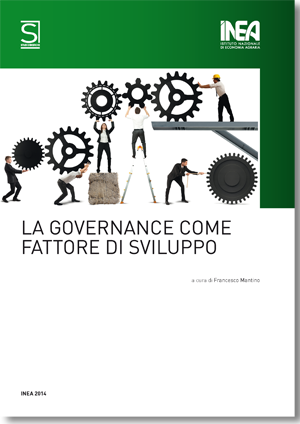La governance come fattore di sviluppo
 The main focus here is on the EU Rural Development Plans (RDPs) and the Cohesion programmes, as they have been implemented in Italian regions. Italy is a very emblematic case of multi-level and multi-actor system, not only in rural development but also in Cohesion policies.
The main focus here is on the EU Rural Development Plans (RDPs) and the Cohesion programmes, as they have been implemented in Italian regions. Italy is a very emblematic case of multi-level and multi-actor system, not only in rural development but also in Cohesion policies.
This study intends to develop an analytical framework to represent how multi-level and multi-actor governance contribute to determine the outcomes of RD policies, from the entering into force of EU regulations to the funds' delivery to rural beneficiaries. In this analysis we follow the assumption of the fundamental role played by institutions in influencing economic development (in this field economists as North and Acemoglu have strongly supported this idea).
We particularly refer to the role of rules and governance structures created by the EU policy reform and its real implementation over time. Many authors have already stressed the role of governance, and in this work we move further and develop the idea that rules and governance determine RD policy failure or success depending on how different governance tiers interact in policy design and implementation.














